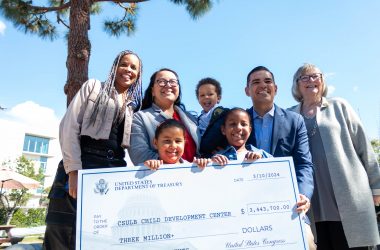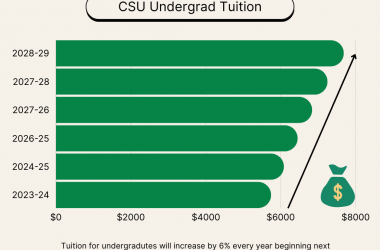An academic student employee union and the California State University are looking to the state to resolve their disagreements over the inclusion of fee waivers in their upcoming contract.
The United Automobile, Aerospace and Agriculture Implement Workers of America (UAW) 4123 have been discussing the contract with the CSU since July, requesting fee waivers though the CSU is not willing to offer them. The union represents more than 6,000 teaching associates, graduate assistants and instructional student assistants, with about 550 Cal State Long Beach members.
According to the UAW, union members took a 7 percent wage cut last year when student fees increased. According to a UAW press release,
Anthony Portantino, chair of the Assembly Higher Education Committee, said that without a fee waiver, academic student employees earn $1.80 an hour if their salaries are used to pay student fees.
Banks said in a Nov. 17 Daily Forty-Niner article that many union members have more than one job, while others have had to drop out of school.
The CSU and UAW June 2005-September 2008 contract stated that the option of fee waivers for the 2006-2007 fiscal year “will be at the discretion of the CSU subject to the administration’s determination that it has received funding sufficient to implement the cost of this benefit.” The CSU did not implement a fee waiver for that fiscal year.
The Fresno Bee said full fee waivers would cost the CSU anywhere from $8 million to $11 million annually. The UAW changed its demands as time passed and is willing to compromise through partial fee waivers and similar suggestions, but the CSU is “still not budging,” said James Banks, president of the UAW 4123.
“The potential cost of fee waivers will be very difficult to implement in the midst of the current budget situation,” said Teresa Ruiz, CSU Public Affairs communications specialist, in an e-mail.
The UAW’s fee waivers would be available only to employees who work a minimum number of hours per semester or quarter as well. Banks said the cost would reach $1 million annually.
“This is something that’s just a fraction of a percentage of the total costs,” Banks said, “and we think that the university has the ability to provide that.”
State Senate President Pro Tem Darrell Steinberg offered in December to act as a mediator, postponing the UAW’s planned Dec. 10 strike.
Steinberg supported a fee waiver benefit in a letter addressed to the CSU.
The Public Employment Relations Board (PERB) declared in January that the two groups are at an impasse, which the CSU had filed. During an impasse, the union is not allowed to strike.
The CSU and UAW have been speaking with Steinberg separately, though PERB procedures require that the State Mediation and Conciliation Service assigns a mediator as the first step of an impasse.
The UAW and CSU first met with the mediator in February and continued to hold sessions until March 30, according to the UAW.
Because the mediator was unable to bring the groups to a resolution, they are now creating a three-person fact-finding panel, according to the UAW.
According to PERB, the panel will include an impartial chairperson, a CSU employee and a union member. They will conduct hearings presenting their evidence and arguments, and the chairperson will make a recommendation.
The panel members have not yet been selected, but the process should begin in a few weeks, Banks said.
If the CSU and UAW are still unable to agree 10 days after the chairperson makes a decision, the CSU can implement their last offer and the UAW will be legally allowed to strike, according to Banks.
“A strike might be something that we’ll have to do,” Banks said. “The [CSU] just kind of dragged and stalled everything.”



